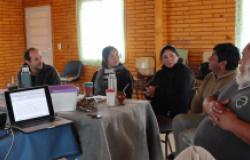"The <i>Realpolitik</i> of Ending Poverty: An Action Plan for U.S. Foreign Policy"
NOVEMBER 2005--Wilson Center Senior Scholar John Sewell Provides Perspective on Fighting Poverty
The Bush administration has made promoting development and addressing poverty one of the three key priorities for American foreign policy, along with defense and diplomacy. But according to Wilson Center Senior Scholar John Sewell, the improvements in the U.S. poverty plan—such as creation of the Millennium Challenge Corporation and increased funding for HIV/AIDS research—are largely inadequate and do not address the challenge poverty poses to the United States and the world.
In a new paper titled "The Realpolitik of Ending Poverty: An Action Plan for U.S. Foreign Policy," Sewell lays out a strategy for eradicating poverty that goes beyond the traditional call for increased foreign aid. Including 21 recommendations—from a recommitment to the Millennium Development Goals to strengthening healthcare in developing countries—Sewell provides concrete policy actions that also promote American national interests.
Asserting that a comprehensive poverty strategy is not just an ethical obligation but a safeguard for future generations of Americans, Sewell writes, "American development policies often have been subject to a desire for quick demonstrable results. But policymakers and the public need to take a long-term perspective on the importance of eliminating extreme poverty to vital American values and interests."
Read more about John Sewell on his Wilson Center scholar page.
Related Program

Environmental Change and Security Program
The Environmental Change and Security Program (ECSP) explores the connections between environmental change, health, and population dynamics and their links to conflict, human insecurity, and foreign policy. Read more










